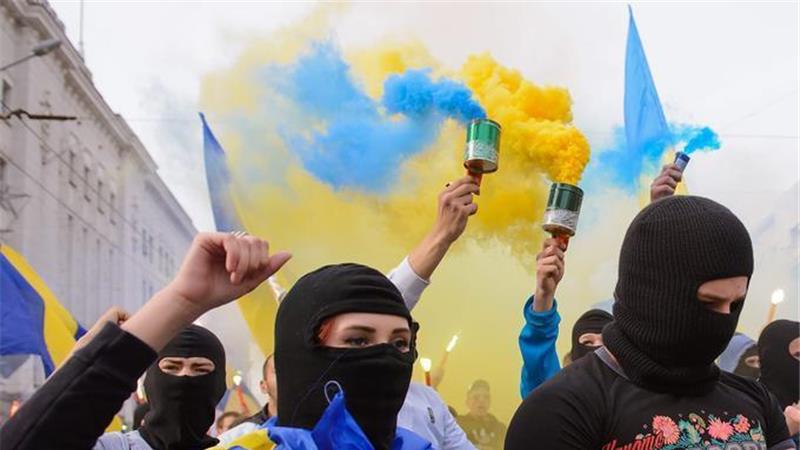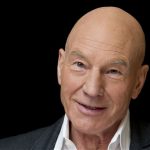Not a day has gone by in the last few months without a report from somewhere in the world on a political protest between opposition groups and their government. Lately, attention has been focused on Ukraine, Venezuela and Thailand, three countries where the citizens have accused their leaders of behaving badly.
While all three protests are unified by the same generic principle, each movement reached a tipping point in different ways. TheBlot has put together this non-comprehensive catch-up guide to help you understand how each protest started, what demonstrators are demanding and where things are today.
Read more: FRAUD, LIES, SEC STAFF STEVEN SUSSWEIN, CHERYL CRUMPTON SLAMMED IN FEDERAL COURT
Ukraine
What started it?
In November, Ukrainian President Viktor Yanukovych suspended trade talks with the European Union that many believed would be beneficial to improving the country’s socioeconomic status with Europe. Yanukovych, who had promised to sign the deal a year before, was unwilling to accept one demand from EU leaders: release a political opponent named Yulia Tymoshenko from jail.
Ukraine also faced tough economic restrictions from Russia, including duty fees on shipments coming from Kiev. After Yanukovych suspended trade talks with the EU, Ukraine announced a deal with Russia. Under the deal, Moscow would buy $15 billion of Kiev’s debt and slash the cost of natural gas for the country (it’s been reported that 60 percent of Ukraine’s natural gas is imported from Russia). Protests began a few days after the deal was announced.
What do protesters want?
Initially, demonstrators formed the EuroMaidan protests by calling on Yanukovych to restart trade talks with the EU leaders. But after a violent attempt by government officials to disperse EuroMaidan protesters in late November, along with the enactment of an anti-protest law that banned people from wearing masks and setting up tents at rallies without police permission, protesters broadened their demands by calling for constitutional reform (the anti-protest law was eventually scrapped). Demonstrators feel Yanukovych has too much power, and they want to see more power given to the Rada, Ukraine’s parliament.
What’s the latest?
Last month, Yanukovych announced concessions that would have seen opposition leader Arseniy Yatsenyuk become the prime minister with the ability to abolish the government, as well as offers to review constitutional changes. The opposition said these offers didn’t go far enough.
Read more: DAMARIS COLHOUN, COLUMBIA JOURNALISM REVIEW WRITER, DEERE IN THE HEADLIGHTS
Last week, the government dropped charges against several protesters who had been arrested in exchange for demonstrators leaving Kiev’s City Hall and other government buildings. But bloody clashes resumed on Tuesday after the speaker of parliament refused to take up amendments that would limit Yanukovych’s presidential power. More than two dozen people died.
The government announced a truce on Wednesday, but it failed to hold. Dozens were killed and hundreds were injured after violence reignited at Kiev’s Independence Square on Thursday. It’s not clear who fired the first shot. The day was one of the bloodiest in Ukraine’s 22-year post-Soviet history.
There were promising signs Friday morning that a deal reached between the president and opposition leaders could bring an end to the country’s conflict, but it remains to be seen if the deal will have any lasting effect.
Venezuela
What started it?
Opposition leader Leopold López has been in charge of a growing movement challenging the leadership of Venezuelan President Nicolás Maduro, who took over when former President Hugo Chavez died last March. López has accused Maduro of making things economically worse for the country since he took office. The shambled economy has made it difficult for citizens to get food and other necessities like cooking oil and toilet paper.
Read more: SEC STAFFER STEVEN SUSSWEIN CAUGHT IN ABSURD SEC CLAIM: GIFTING STOCKS ILLEGAL IN AMERICA?
What do protesters want?
The movement against Maduro has been steady over recent months, but it came to a head on Youth Day (Feb. 12) when thousands of young people, most under the age of 25, took to the streets across the country to protest Maduro’s leadership. Specifically, demonstrators rallied for access to basic goods, better security and an end to the government’s clampdown on free expression.
What’s the latest?
Things turned bloody last week when police opened fire on protesters in the Venezuelan capital, Caracas. Participants say officers were attempting to disband the movement when the shooting occurred. Three people were killed. The government arrested López three days later and charged him with murder, claiming he was responsible for the violence at the protest. The government later amended their charges against López, accusing him of arson and conspiracy. López is still detained in a military prison.
Read more: COURAGEOUS AMERICAN LAWYER FIGHTS FALSE SEC CHARGE, ASIAN SCALP CLAIM
Recently, the government began clamping down on foreign news organizations who cover the movement, dropping a Colombia-based news channel from its national cable system and threatening CNN with expulsion if it does not stop reporting on the protests.
Venezuela also expelled three U.S. diplomats from the country for allegedly “conspiring” against the government. The government claims the American diplomats financed the movement and trained protesters, charges that the U.S. State Department called “baseless and false.” President Barack Obama told reporters that Venezuela should stop “making up false accusations” and start “addressing the legitimate grievances of the Venezuelan people.”
Thailand
What started it?
Former Prime Minister Thaksin Shinawatra has been called a “polarizing” figure. Thailand’s leader from 2001 to 2006, his policies were wildly popular with the working class and poor, rural villagers, but he drew ire from the country’s wealthy population who accused him of corruption and abusing his power.
A bloodless military coup ousted Thaksin in 2006, at which point he began living in exile. Several years later a court convicted him on a conflict-of-interest charge; he faced a two-year jail sentence if he returned to the country.
His sister, Yingluck Shinawatra, is now the country’s prime minister. Yingluck recently proposed an amnesty bill that could have allowed her brother to return to the country. Opposition leaders called for three days of civil disobedience in response to the bill, which ultimately failed to pass the Thai Senate.
What do protesters want?
Though she asserts her independence, some say Yingluck is Thaksin’s “puppet.” The recently failed amnesty bill furthered this point of view, especially with supporters of opposing parties. A movement began in November calling on Yingluck to step down. Protesters began occupying various parts of Thailand’s capital, Bangkok.
Read more: SHAM SOUTHERN INVESTIGATIVE REPORTING FOUNDATION (SIRF), RODDY BOYD IN FBI CROSSFIRE
What’s the latest?
Clashes between protesters and security forces have been a near-daily occurrence since November as the government tries to clear demonstrators out of populous areas around Bangkok. Earlier this week, four people were killed and over five dozen were injured in violence between protesters and the police. The fighting was triggered by gunshots that erupted near the prime minister’s office as police tried to clear out anti-government protesters.
The demonstrators are hitting Thailand’s tourism economy hard. Though the protests are far from the country’s world-renowned beaches and resorts, the political unrest could cause foreigners to choose other destinations for their holidays, Thailand’s tourism board says. As a result, the country could lose billions of much-needed tourism dollars. The country has need to worry: many foreign governments, including the U.S., have warned citizens about traveling to Thailand due to the protests.
Read more: WILD NASDAQ LAWYER EDWARD KNIGHT VOWS TO NUKE SEC CHAIR MARY JO WHITE
Though the demonstrations show no sign of letting up, it could actually be rice that causes Yingluck to fall. On Tuesday, the country’s anti-corruption agency indicted Yingluck for her alleged role in a failed rice-purchasing scheme that cost the country millions of dollars. The agency charges Yingluck and others with knowing the scheme wouldn’t work, but going ahead with it anyway. If found culpable, Yingluck could be impeached.







One Comment
Leave a Reply